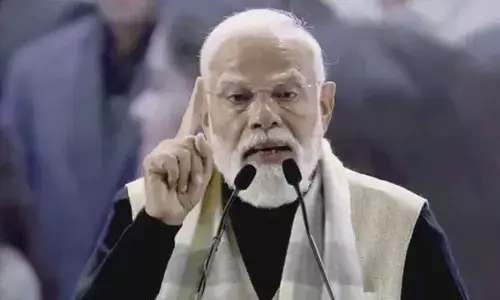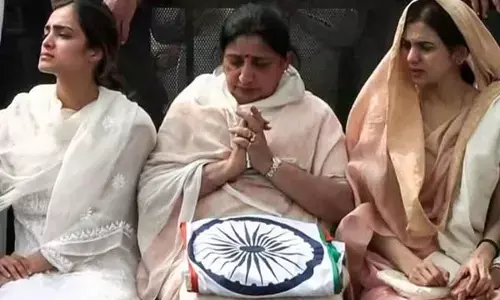Time right for Swadeshi

While the United States under Donald Trump is increasingly getting aggressively protectionist, we in the developing world are craving to open up our economies. The affluent world forces us to do so.
While the United States under Donald Trump is increasingly getting aggressively protectionist, we in the developing world are craving to open up our economies. The affluent world forces us to do so.
But, global economic pointers tell us that it is now the right time to be aggressively swadeshi. The multinational corporations (MNCs) which represent the western economic might are increasingly facing the heat from the local companies’ world over.
The Government of India, which calls for Make in India, should focus on the vulnerabilities of global corporate giants. The India Inc should tame the MNCs to grab the emerging opportunity.
The latest issue of Economist reported that much before the Trump triumph and his protectionist crusade to make them stay back, MNCs, the agents behind global integration are already in retreat.
Their financial performance has slipped so that they are no longer outstripping local firms. Many of these MNCs have exhausted their ability to cut costs and taxes and out-think their local competitors.
The MNCs influence what billions of people eat, wear, drink, watch and think. In the past five years, the profits of multinationals have dropped by 25 percent. Returns on investment declined to the lowest in two decades.
Estimates suggest that about 40 percent of all MNCs earn only 10 percent on the equity. Majority of such global giants are recording sluggish growth and less profitable as compared to local competitors.
As the Trump disaster forcing the MNCs to make further retreat, the domestic companies should step in aggressively to fill the space likely to be vacated by the global corporates.
Shedding the illusions of globalisation, the Indian government should take the cue from Donald Trump to be equally protectionist to teach the Uncle Sam in the language they understand.
In fact, Indian corporates should also go global to emerge as Indian MNCs. The share of global profits accounted for by the MNCs fell from 35 percent a decade ago to only 30 percent now.
China seems to have caught up with the emerging economic landscape. Chinese companies became more sophisticated while the MNCs find it less profitable to construct costly offices and factories globally; the local companies without any such burden are learning to compete in innovation.
India should also join the race to tame the MNCs to make the local companies to move forward.
Not that India does not have the muscle to do so. Like the Chinese e-commerce giants, Indian telecom companies too are making the MNCs to run for profits with equally cutting-edge technologies.
The MNCs though reaped profits brought in much-needed foreign investment and technology to India. They offered exciting transactional freedom to the consumers. They transformed India in to a global super bazar.
Indian companies should compete to provide the young and modern Indian consumer the novel ideas, products, services, technology and managerial practiced.
Think globally and act locally. The KFC opening its outlet near Tiananmen Square in 1987, McDonalds surfacing in Pushkin Square in Moscow and Shenzhen, China in 1990 heralded an altogether new world order. Why not Indian goods and services set the markets in Manhattan and Manchester on fire?










